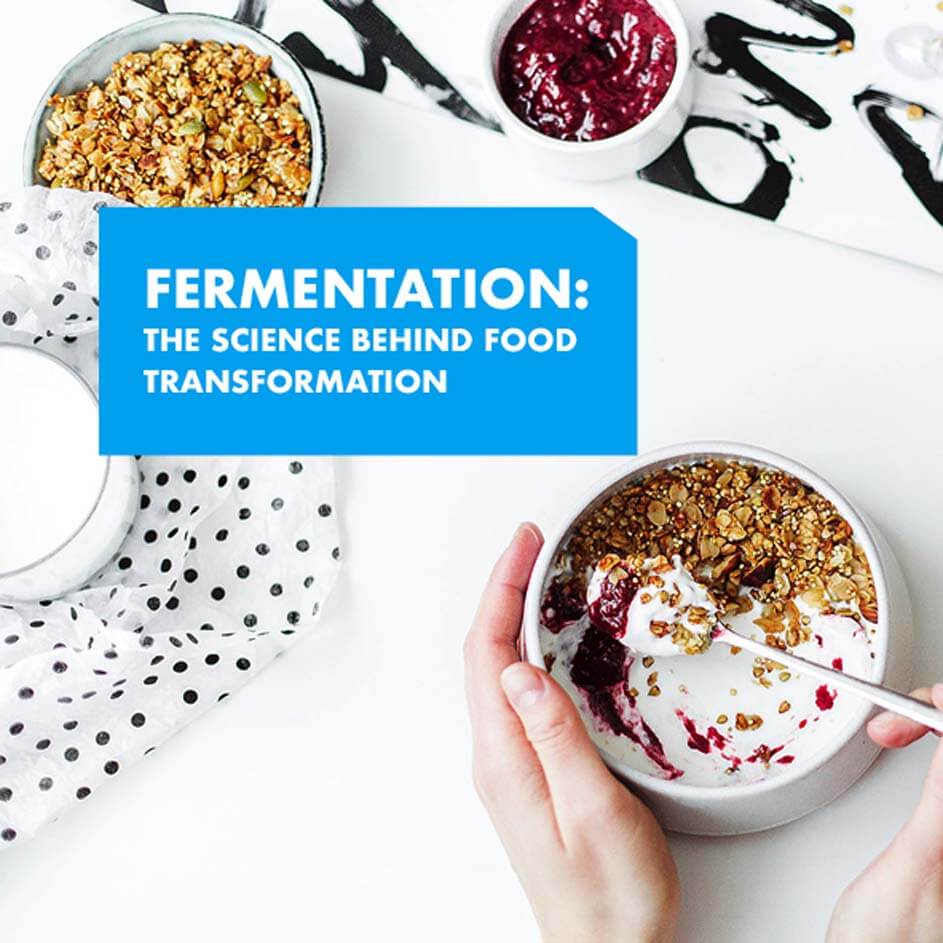
Fermentation: The Science behind Food Transformation
Food fermentation is a food processing technology that utilizes the growth and metabolic activity of microorganisms for the stabilization and transformation of food materials. Nowadays, fermented foods and beverages are becoming increasingly popular.
Fermented foods have been part of the human diet for centuries, and were initially produced as a way to preserve foods, improve flavor and eliminate food toxins. There are thousands of different types of fermented foods in the world, for example cheese, tempeh, yoghurt, miso, beer and more. Today, more people are turning to these foods for their potential health benefits. But did you know the process of fermented foods?
What is fermentation?
Fermentation is a metabolic process that produces chemical changes in organic substrates through the action of enzymes. In biochemistry, it is narrowly defined as the extraction of energy from carbohydrates in the absence of oxygen. This process takes place when there are beneficial bacteria present that break down the starch and sugars in the food. Fermentation also promotes the growth of beneficial bacteria, known as probiotics. Probiotics have been shown to improve immune function as well as digestive and heart health.
Modern Fermentation
Fermentation has existed since the Neolithic Era, some of the earliest documentation of fermentation being between 7000-6600 BCE in Jiahu, China. In today’s society, we don’t eat quite as many fermented foods as our ancestors did. The most commonly consumed fermented food and drink would be cheese, beer, wine, yogurt, cured sausage and sourdough bread. Many store-bought fermented foods, like sauerkraut or pickles, are not authentic as they are often preserved in vinegar instead of the traditional and naturally occurring beneficial bacteria.
Benefit of Fermentation
=A number of health benefits are associated with fermentation. In fact, fermented foods are often more nutritious than their unfermented form. For example fermentation help to Improves digestive health, have a significant impact on your immune system, and fermentation also helps break down nutrients in food, making them easier to digest than their unfermented counterparts.
Intersted In Learning More About Fermentation?
Let’s join SGU’s Food Technology study program. You will learn about every aspect of the food processing industry, from the knowledge about food material characteristics to food packaging and storage technology. SGU Food Technology provides the opportunity to join a fast-growing food industry. A unique combination of theoretical knowledge and hands-on experiences gained during two internships, in Indonesia and Germany, provide our graduates with appropriate skills in science and technology, together with creative and innovative flair.
SGU Food Technology offers 2 curricula:
- Single Degree
- Double Degree at Albstadt-Sigmaringen University or Fachhochschule Südwestfalen
Download our curriculum by clicking the button at the end of this article.
What are you waiting for, study Food Technology at SGU. Contact our consultant to find out more!
About SGU
SWISS GERMAN UNIVERSITY (SGU) is an international university in Indonesia, was established in 2000 as a joint effort between Indonesia, Germany, Switzerland, and Austria. We are the pioneer in offering international curricula in Indonesia. Qualified students can graduate with a Double Degree from Indonesia and Germany, which SGU provides in cooperation with partner universities; surely a valuable tool for your future careers. Ever since its establishment, SGU has been dedicated to delivering quality education in line with international standards and aims to develop skilled professionals who meet the demands of the industry. In order to achieve its objectives, SGU offers quality-oriented learning through 12 Bachelor’s Degree Programs and 4 Master’s Degree Programs ranging from Engineering, Information Technology, and Business to Life Sciences and Social Sciences. Furthermore, with small class sizes, and with English as the medium of instruction, you can look forward to pursuing your tertiary education and degree with full confidence.
Curriculum Single Degree Curriculum Double Degree Back
